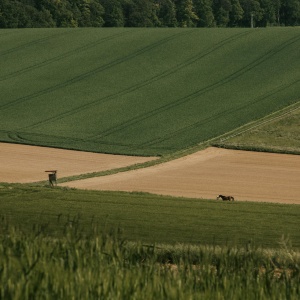
The study analyses how crop diversity impacts yield stability at a national scale, and finds that the stabilising effect of crop diversity increases as the land area increases. This doesn’t diminish the importance of field-level diversity, but it has implications for national strategies to diversify crop production.
Abstract
Crop diversification is increasingly recognized as a strategy to stabilize national food production, yet the benefits of this approach may vary across nations due to the scale dependence of crop diversity and stability. Here we use crop production data from 131 nations from 1961 to 2020 to explore the spatial scale dependence of the crop diversity–stability relationship. Drawing on ecological theory and complementary analytical approaches, we find that as the total national harvested area increases, yield stability increases. Crop diversity stabilizes national yield stability, as does an increase in the number of farms, but these stabilizing effects are weaker in smaller countries. Our findings suggest that enhancing crop diversity at the national level may not provide a de facto universal strategy for increasing yield stability across all countries—with implications for national strategies promoting crop diversification to protect against food system shocks.
Reference
Meng, B., Yang, Q., Mehrabi, Z. et al. Larger nations benefit more than smaller nations from the stabilizing effects of crop diversity. Nat Food 5, 491–498 (2024). https://doi.org/10.1038/s43016-024-00992-1












Post a new comment »